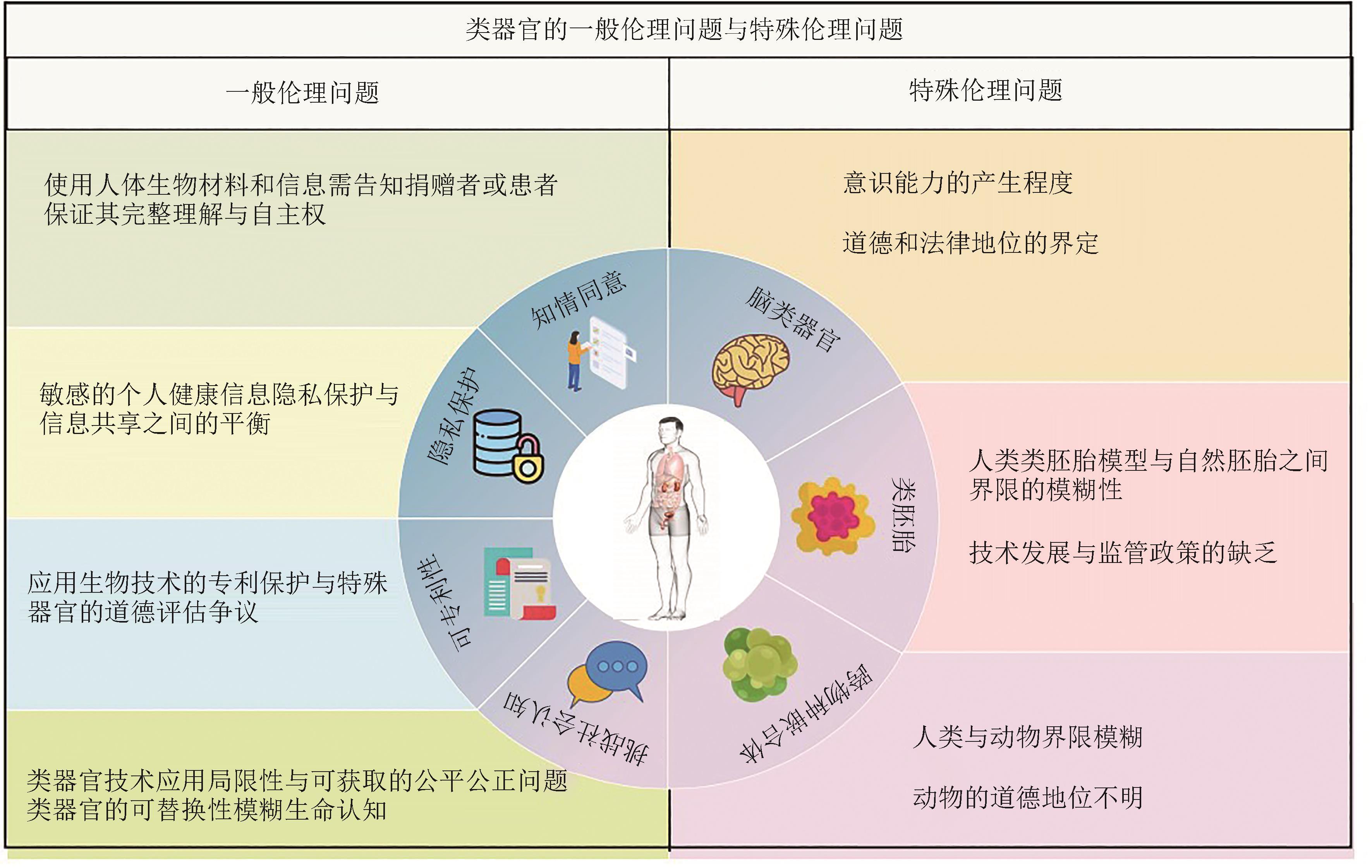| 1 |
BARTFELD S, CLEVERS H. Stem cell-derived organoids and their application for medical research and patient treatment[J]. Journal of Molecular Medicine, 2017, 95(7): 729-738.
|
| 2 |
Method of the year 2017: organoids[J]. Nature Methods, 2018, 15: 1.
|
| 3 |
The United States Congress. S. 5002 (117th): FDA Modernization Act 2.0[R/OL]. 2022[2024-01-01]. .
|
| 4 |
CORRÒ C, NOVELLASDEMUNT L, LI V S W. A brief history of organoids[J]. American Journal of Physiology Cell Physiology, 2020, 319(1): C151-C165.
|
| 5 |
CHUAI M L, SERRANO NÁJERA G, SERRA M, et al. Reconstruction of distinct vertebrate gastrulation modes via modulation of key cell behaviors in the chick embryo[J]. Science Advances, 2023, 9(1): eabn5429.
|
| 6 |
ROSSBACH P, BÖHME H J, LANGE S, et al. Model-based prediction of an effective adhesion parameter guiding multi-type cell segregation[J]. Entropy, 2021, 23(11): 1378.
|
| 7 |
CHO L T, WAMAITHA S E, TSAI I J, et al. Conversion from mouse embryonic to extra-embryonic endoderm stem cells reveals distinct differentiation capacities of pluripotent stem cell states[J]. Development, 2012, 139(16): 2866-2877.
|
| 8 |
LUDWIG T E, KUJAK A, RAUTI A, et al. 20 years of human pluripotent stem cell research: it all started with five lines[J]. Cell Stem Cell, 2018, 23(5): 644-648.
|
| 9 |
XIANG G H, WANG H Y. Extended pluripotent stem cells facilitate mouse model generation[J]. Protein & Cell, 2019, 10(1): 5-7.
|
| 10 |
SATO T, VRIES R G, SNIPPERT H J, et al. Single Lgr5 stem cells build crypt-villus structures in vitro without a mesenchymal niche[J]. Nature, 2009, 459(7244): 262-265.
|
| 11 |
张秀梅, 翟运开, 赵杰, 等. 类器官模型国内外数据库近10年文献研究热点分析[J]. 中国组织工程研究, 2021, 25(8): 1249-1255.
|
|
ZHANG X M, ZHAI Y K, ZHAO J, et al. Research hotspots of organoid models in recent 10 years: a search in domestic and foreign databases[J]. Chinese Journal of Tissue Engineering Research, 2021, 25(8): 1249-1255.
|
| 12 |
SAWAI T, SAKAGUCHI H, THOMAS E, et al. The ethics of cerebral organoid research: being conscious of consciousness[J]. Stem Cell Reports, 2019, 13(3): 440-447.
|
| 13 |
GILAZIEVA Z, PONOMAREV A, RUTLAND C, et al. Promising applications of tumor spheroids and organoids for personalized medicine[J]. Cancers, 2020, 12(10): 2727.
|
| 14 |
BREDENOORD A L, CLEVERS H, KNOBLICH J A. Human tissues in a dish: the research and ethical implications of organoid technology[J]. Science, 2017, 355(6322): eaaf9414.
|
| 15 |
ZHU L L, FAN Y H, HUANG X M, et al. Patent bibliometric analysis for global trend of organoid technologies in the past decade[J]. iScience, 2022, 25(8): 104728.
|
| 16 |
VELASCO S, PAULSEN B, ARLOTTA P. 3D brain organoids: studying brain development and disease outside the embryo[J]. Annual Review of Neuroscience, 2020, 43: 375-389.
|
| 17 |
BIREY F, ANDERSEN J, MAKINSON C D, et al. Assembly of functionally integrated human forebrain spheroids[J]. Nature, 2017, 545(7652): 54-59.
|
| 18 |
李德新, 朱祺. 培养皿中的大脑模型: 人脑类器官研究的伦理问题探讨[J]. 自然辩证法通讯, 2024, 46(4): 84-91.
|
|
LI D X, ZHU Q. The brain model in a petri dish: ethical issues in the study of human brain organoids[J]. Journal of Dialectics of Nature, 2024, 46(4): 84-91.
|
| 19 |
罗会宇, 马永慧. 人脑类器官的道德地位问题[J]. 自然辩证法研究, 2023, 39(5): 75-80.
|
|
LUO H Y, MA Y H. Issues on moral status of human brain organoids[J]. Studies in Dialectics of Nature, 2023, 39(5): 75-80.
|
| 20 |
LAVAZZA A, MASSIMINI M. Cerebral organoids: ethical issues and consciousness assessment[J]. Journal of Medical Ethics, 2018, 44(9): 606-610.
|
| 21 |
BAHADUR G, MORRISON M, MACHIN L. Beyond the ‘embryo question’: human embryonic stem cell ethics in the context of biomaterial donation in the UK[J]. Reproductive Biomedicine Online, 2010, 21(7): 868-874.
|
| 22 |
杨洁, 张弛, 李天晴. 探秘生命之初:类胚胎的研究革命与伦理探究[J]. 科学, 2024, 76(2): 8-11, 4.
|
|
YANG J, ZHANG C, LI T Q. Exploring the origin of life: revolutionary research on embryoids and ethical inquiry[J]. Science, 2024, 76(2): 8-11, 4.
|
| 23 |
MANSOUR A A, GONÇALVES J T, BLOYD C W, et al. An in vivo model of functional and vascularized human brain organoids[J]. Nature Biotechnology, 2018, 36(5):432-441.
|
| 24 |
DING L L, XIAO Z Y, GONG X, et al. Knowledge graphs of ethical concerns of cerebral organoids[J]. Cell Proliferation, 2022, 55(8): e13239.
|
| 25 |
FARAHANY N A, GREELY H T, HYMAN S, et al. The ethics of experimenting with human brain tissue[J]. Nature, 2018, 556(7702): 429-432.
|
| 26 |
MARSEE A, ROOS F J M, VERSTEGEN M M A, et al. Building consensus on definition and nomenclature of hepatic, pancreatic, and biliary organoids[J]. Cell Stem Cell, 2021, 28(5): 816-832.
|
| 27 |
PAȘCA S P, ARLOTTA P, BATEUP H S, et al. A nomenclature consensus for nervous system organoids and assembloids[J]. Nature, 2022, 609(7929): 907-910.
|
| 28 |
HEINEMANN T, HONNEFELDER L. Principles of ethical decision making regarding embryonic stem cell research in Germany[J]. Bioethics, 2002, 16(6): 530-543.
|
| 29 |
JEPSON A, MOSTYN B, HARGREAVE T B, et al. Human fertilisation and embryology bill[J]. British Medical Journal, 1990, 300(6741):1721-1722.
|
| 30 |
中国细胞生物学学会. 人干细胞研究伦理审查技术规范:T/C [S]. 北京: 中国标准出版社, 2020: 8.
|
|
Chinese Society for Cell Biology. Technical specification for ethical review of human stem cell research: T/C [S]. Beijing: China Standards Press, 2020: 8.
|
| 31 |
罗会宇, 马永慧. 人源类器官的应用前景、伦理风险与治理建议[J]. 科技导报, 2022, 40(8): 6-13.
|
|
LUO H Y, MA Y H. Application prospect and ethical risk of human organoids research[J]. Science & Technology Review, 2022, 40(8): 6-13.
|
| 32 |
MOLLAKI V. Ethical challenges in organoid use[J]. Biotech, 2021, 10(3): 12.
|

